Emails and group messages are essential to online jobs.
However, some employees and managers don’t know these online communication dos and don’ts. They send messages late, write unclear subject lines, or send messages to their boss or employees outside work hours.
If you’re part of this group, here are some email etiquette tips you should follow in the workplace.
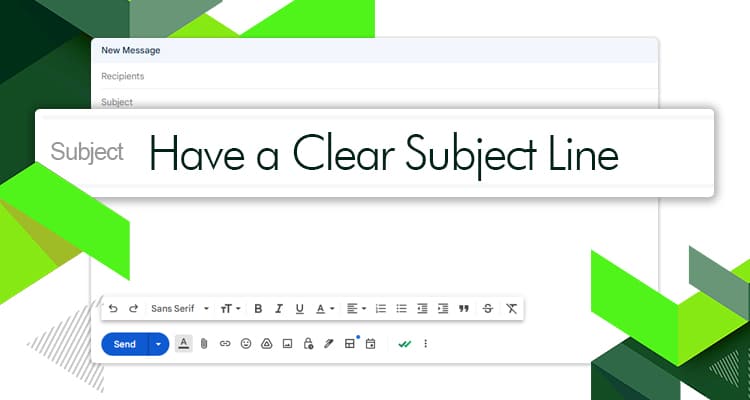
Have a Clear Subject Line
Before sending an email, remember that your boss probably receives dozens of emails everyday. If the title of your message is vague or general, they might just ignore or overlook it.
Make sure that your subject line is direct and descriptive. Your boss and co-workers should already know the point of your message just by reading it.
For example, if you’re emailing your boss about your request for a paid leave, its subject should be: “Request for Leave on X to Y.”
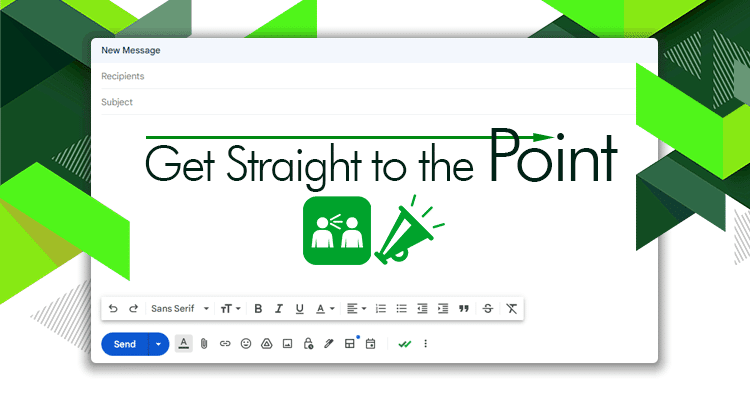
Get Straight to the Point
Aside from your subject line, your messages should also be clear and concise. Again, nobody has time to read your novel of a post at work, so the faster they can finish reading what you typed, the better.
Keep your messages short without compromising the context. Following this workplace email etiquette shows you respect your team’s time.
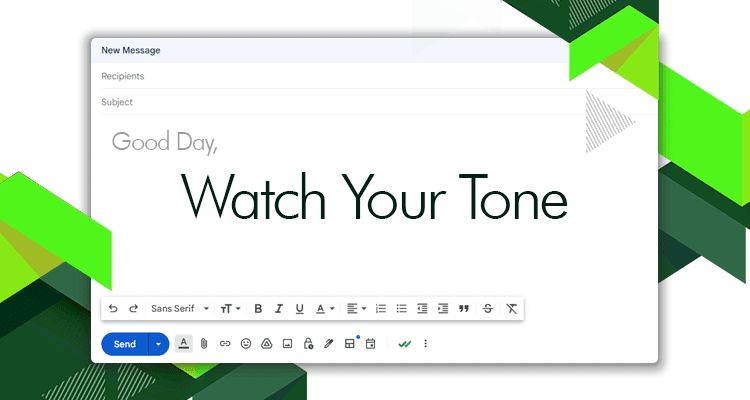
Watch Your Tone
An often-overlooked rule to follow when emailing your boss and co-workers is to keep your message’s tone professional and respectful. Doing so reduces the risk of offending your boss or co-workers.
When starting your email, always begin with a “Dear, (Name)” or “Good Day.” Avoid using slang, emojis, and overly familiar language unless you’re good friends with the recipient.
Unless it’s a crucial matter, don’t use words like “urgent” or “important” when sending requests to your co-workers as these can stir up unnecessary anxiety.
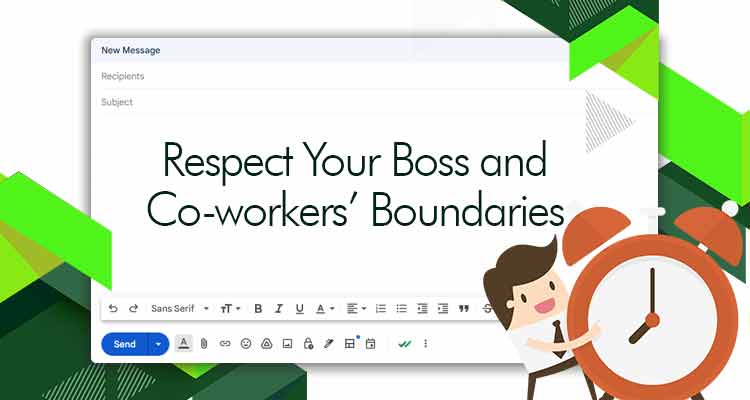
Respect Your Boss and Co-workers’ Boundaries
We can all agree that none of us like receiving work-related emails or messages after our shifts. Unfortunately, many people (especially managers) forget this simple workplace email etiquette and continue to breach their team’s boundaries.
Not only is this an unwelcome distraction after hours, but it can also cause unnecessary stress and anxiety to the person you’re emailing.
So unless it’s highly urgent, never email your boss and co-workers after they’ve clocked out. Doing so helps you build trust with them and reduce workplace burnout.
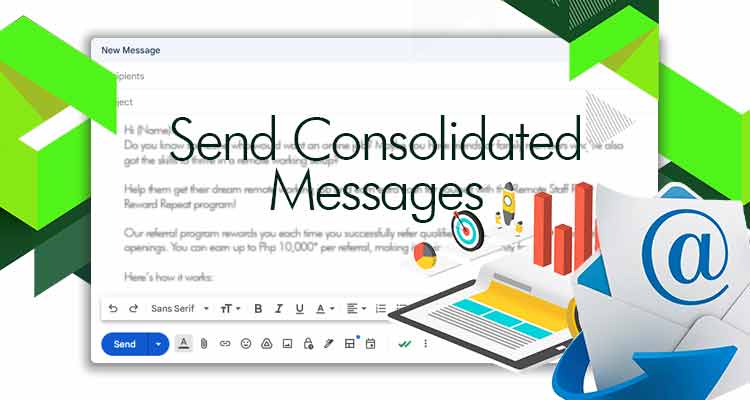
Send Consolidated Messages
Some employees believe that group chats are similar to spoken conversations and thus break their sentences down into separate messages.
Now, don’t get me wrong. Doing this is alright if you’re casually conversing with your teammates. However, it can clog your team’s group chat and bury important notes in the process.
Next time, send your messages as an entire block, especially if it’s urgent. This helps save time and reduces misunderstandings.
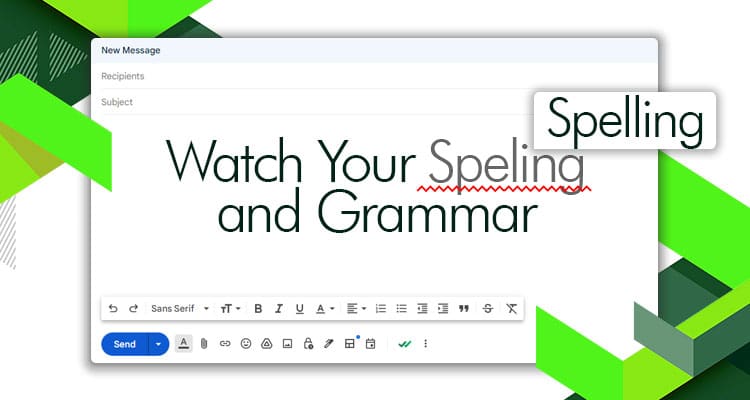
Watch Your Spelling and Grammar
Part of proper workplace email etiquette is ensuring your messages are grammatically correct so that your recipients can easily read and understand them. Doing this lessens the risk of misunderstandings and improves your recipient’s response time.
Using apps like Grammarly can help improve your spelling and grammar as needed.
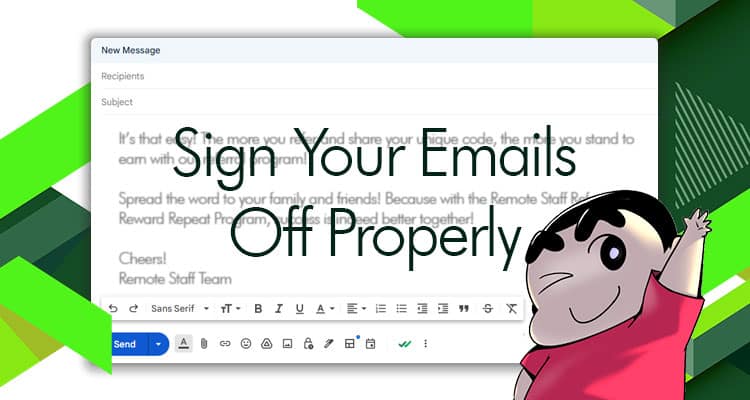
Sign Your Emails Off Properly
Once you’ve finished writing your email, you need to write a proper sign-off.
Use a professional yet functional salutation like “regards,” “respectfully yours,” or “I’ll speak with you soon.”

Writing and Sending Emails The Right Way
Whether you work in an office or online, you can’t escape writing emails.
The importance of email etiquette makes all the difference in establishing seamless communication with your boss and co-workers.
If it’s your first time hearing about email etiquette, you can start with the ones mentioned above. Following these rules when emailing and chatting with your boss and co-workers will help you foster effective communication and positive working relationships with them.
Now that you know the proper workplace email etiquette, it’s time to apply them at work. If you don’t have a remote job yet, Remote Staff is here to help. Our jobs list contains various positions for you to choose from.
Good luck!

